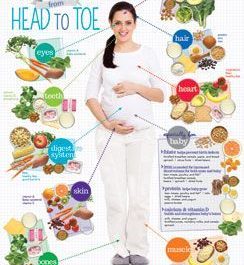Eating healthy is vital for everyone, especially growing kids. Good nutrition is essential for their physical and mental development, as it provides the necessary nutrients, vitamins, and minerals required for their growth. In this article, we will delve into some important healthy eating habits that parents can encourage in their children to foster a lifetime of good nutrition.
1. Balanced Meals
One of the key aspects of healthy eating habits for growing kids is the consumption of balanced meals. Parents should ensure that their children’s meals include a combination of all the essential food groups: carbohydrates, proteins, fruits, vegetables, and healthy fats. A balanced meal provides the necessary energy and nutrients required for optimal growth and development.
2. Regular Breakfast
Breakfast is often referred to as the most important meal of the day, and this holds true for growing kids. A nutritious breakfast kickstarts their metabolism and provides the energy they need to sustain throughout the day. Encourage your children to eat a breakfast consisting of whole grain cereals, fruits, dairy products, and protein-rich foods like eggs or nut butter. Avoid sugary cereals or breakfast bars, as they provide empty calories and lack essential nutrients.
3. Plenty of Fruits and Vegetables
Fruits and vegetables are rich in vitamins, minerals, antioxidants, and fiber, making them essential for a child’s healthy diet. Encourage your kids to consume a variety of colorful fruits and vegetables daily. Be creative and offer them as snacks, use them in smoothies, salads, or as toppings on their favorite dishes. By making fruits and vegetables easily accessible and appealing, you increase the chances of your children incorporating them into their daily routine.
4. Limit Sugary and Processed Foods
Excessive intake of sugary and processed foods can lead to numerous health problems, including obesity, dental issues, and nutrient deficiencies. It is crucial to limit these types of foods in your child’s diet. Instead, opt for natural sweets, such as dried fruits or honey, and choose whole, unprocessed foods whenever possible. Encourage healthier snack options like homemade popcorn, yogurt, or fresh fruit, rather than reaching for cookies or chips.
5. Hydration is Key
Proper hydration is often overlooked but plays a vital role in maintaining good health. Encourage your children to drink an adequate amount of water throughout the day. Limit their intake of sugary beverages like soda or fruit juices, as they are high in empty calories and can have detrimental effects on their overall health. If your child finds it difficult to drink plain water, add natural flavors like lemon or cucumber slices to make it more interesting.
6. Model Healthy Eating
Kids learn by observing their parents’ behavior and habits. As a role model, it is important that you adopt healthy eating habits yourself. Be mindful of your own diet choices and demonstrate the importance of wholesome and nutritious foods. By eating together as a family and serving nutritious meals, you create a positive environment that promotes healthy eating habits for everyone.
7. Encourage Smart Snacking
Snacking can be an opportunity to provide additional nutrients for growing kids. Encourage smart snacking by offering options such as sliced fruits, carrot sticks, yogurt, or a handful of nuts. Avoid processed snacks that are high in salt, sugar, or unhealthy fats. Teach your children to listen to their bodies and eat when they are hungry, rather than relying on mindless snacking out of boredom or habit.
8. Involve Kids in Meal Preparation
Engaging children in meal preparation can spark their interest in healthy foods and encourage them to try new things. Allow your kids to participate in age-appropriate tasks, such as washing fruits and vegetables, stirring ingredients, or even suggesting menu ideas. This involvement creates a sense of ownership, making them more likely to eat the meals they contribute to preparing.
Conclusion
Healthy eating habits for growing kids are crucial for their overall well-being and development. By promoting balanced meals, encouraging regular breakfasts, increasing fruit and vegetable intake, limiting sugary and processed foods, ensuring proper hydration, modeling healthy eating, promoting smart snacking, and involving kids in meal preparation, parents can lay a strong foundation for their children’s health. These habits will not only benefit them in their growing years but also set them up for a lifetime of healthy eating and well-being.




